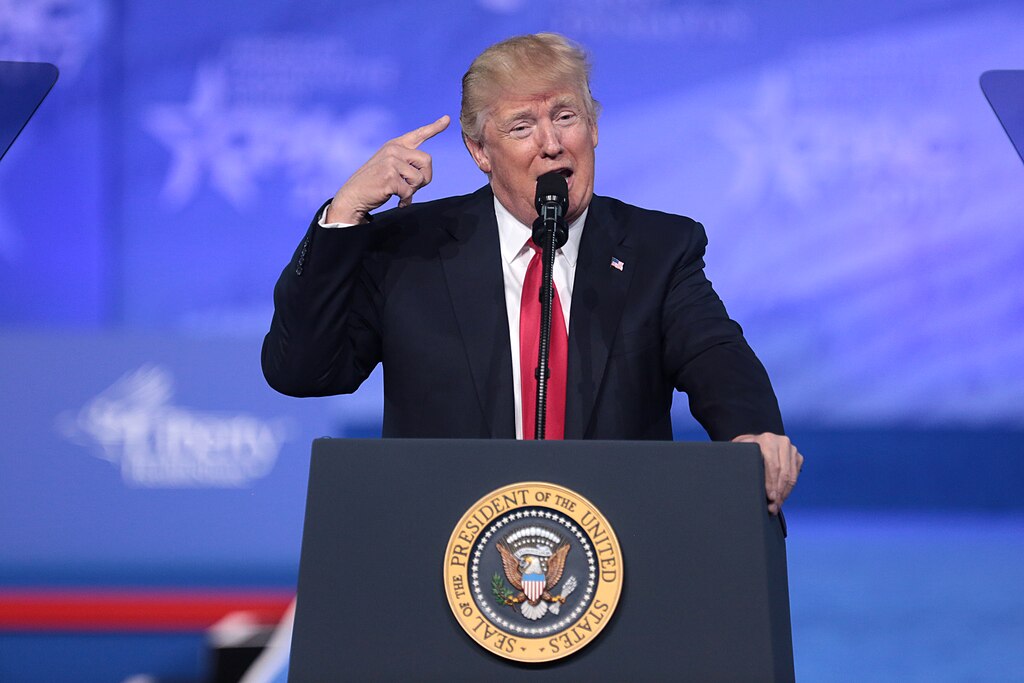President-elect Donald Trump is set to reshape the federal government by dismantling what he terms the "deep state." Sources indicate that on his first day in office, Trump may sign an executive order reviving Schedule F, a policy allowing the reclassification of an estimated 50,000 career federal employees into political appointments. This would enable their replacement with loyalist appointees, fundamentally altering the federal workforce.
Trump’s administration plans to expedite thousands of political appointments across government agencies. Allies claim the move is necessary to remove bureaucrats who allegedly stalled his agenda during his previous term. Critics argue the effort undermines federal job protections and is based on a conspiracy theory targeting career civil servants.
Notable nominees like Russell Vought, tapped to lead the Office of Management and Budget, and Pam Bondi, nominated as Attorney General, support the plan. Vought was instrumental in crafting the original Schedule F order in 2020 and advocates for aligning federal positions with the president’s agenda. Bondi and other appointees, including Kash Patel and Marco Rubio, aim to implement reforms across various departments.
Opponents, including federal worker unions, warn that Schedule F would create a climate of fear and politicization. James Eisenmann, a workforce policy expert, expressed concerns that the policy could suppress dissent and reduce efficiency. Some critics, like Steve Lenkart of the National Federation of Federal Workers, likened it to creating a "secret police" within government ranks.
Supporters of Trump’s initiative claim it is essential for efficient governance, while critics see it as an unprecedented power grab. As Trump’s team identifies federal employees perceived as resistant to his agenda, the debate over Schedule F and its potential consequences continues to intensify.



 U.S. Announces Additional $6 Million in Humanitarian Aid to Cuba Amid Oil Sanctions and Fuel Shortages
U.S. Announces Additional $6 Million in Humanitarian Aid to Cuba Amid Oil Sanctions and Fuel Shortages  Norway Opens Corruption Probe Into Former PM and Nobel Committee Chair Thorbjoern Jagland Over Epstein Links
Norway Opens Corruption Probe Into Former PM and Nobel Committee Chair Thorbjoern Jagland Over Epstein Links  Federal Judge Blocks Trump Administration Move to End TPS for Haitian Immigrants
Federal Judge Blocks Trump Administration Move to End TPS for Haitian Immigrants  New York Legalizes Medical Aid in Dying for Terminally Ill Patients
New York Legalizes Medical Aid in Dying for Terminally Ill Patients  Jack Lang Resigns as Head of Arab World Institute Amid Epstein Controversy
Jack Lang Resigns as Head of Arab World Institute Amid Epstein Controversy  Netanyahu to Meet Trump in Washington as Iran Nuclear Talks Intensify
Netanyahu to Meet Trump in Washington as Iran Nuclear Talks Intensify  RFK Jr. Overhauls Federal Autism Panel, Sparking Medical Community Backlash
RFK Jr. Overhauls Federal Autism Panel, Sparking Medical Community Backlash  Trump to Announce New Federal Reserve Chair Pick as Powell Replacement Looms
Trump to Announce New Federal Reserve Chair Pick as Powell Replacement Looms  Trump Signs “America First Arms Transfer Strategy” to Prioritize U.S. Weapons Sales
Trump Signs “America First Arms Transfer Strategy” to Prioritize U.S. Weapons Sales  Trump Administration Sued Over Suspension of Critical Hudson River Tunnel Funding
Trump Administration Sued Over Suspension of Critical Hudson River Tunnel Funding  US Pushes Ukraine-Russia Peace Talks Before Summer Amid Escalating Attacks
US Pushes Ukraine-Russia Peace Talks Before Summer Amid Escalating Attacks  Citigroup Faces Lawsuit Over Alleged Sexual Harassment by Top Wealth Executive
Citigroup Faces Lawsuit Over Alleged Sexual Harassment by Top Wealth Executive  U.S. Condemns South Africa’s Expulsion of Israeli Diplomat Amid Rising Diplomatic Tensions
U.S. Condemns South Africa’s Expulsion of Israeli Diplomat Amid Rising Diplomatic Tensions  CK Hutchison Launches Arbitration After Panama Court Revokes Canal Port Licences
CK Hutchison Launches Arbitration After Panama Court Revokes Canal Port Licences  FDA Targets Hims & Hers Over $49 Weight-Loss Pill, Raising Legal and Safety Concerns
FDA Targets Hims & Hers Over $49 Weight-Loss Pill, Raising Legal and Safety Concerns  Faith Leaders Arrested on Capitol Hill During Protest Against Trump Immigration Policies and ICE Funding
Faith Leaders Arrested on Capitol Hill During Protest Against Trump Immigration Policies and ICE Funding 































